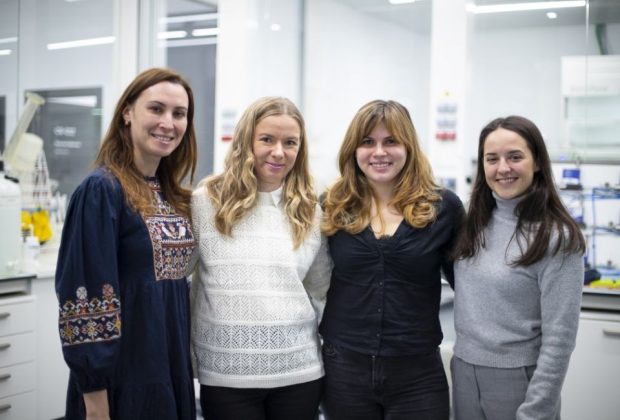The #ScienceForUkraine initiative is two years old and has been set up as an NGO to support Ukrainian research personnel
#ScienceForUkraine" was born spontaneously from the academic world to support Ukrainian research personnel after the Russian military invasion of Ukraine.

The #ScienceForUkraine initiative, which was born spontaneously from academia to support Ukrainian researchers in the wake of Russia’s military invasion of Ukraine on 24 February 2022, is now two years old and has been officially established as a Non-Governmental Organisation (NGO) based in Latvia. One of the first actions of the new NGO has been to announce the launch of a programme to support the mobility of Ukrainian research staff, which will be fuelled by a series of fundraising campaigns. This programme will provide financial support of up to €500 per participant, which can be used to cover travel, accommodation and participation of scientific staff affiliated to Ukrainian universities in activities related to their research, in particular scientific conferences.
One of the important tasks of the implementation of this mobility support programme will be carried out from the BETA Technology Centre of the University of Vic – Central University of Catalonia (UVic-UCC), which has assumed from the beginning a leading role as coordinator of “#ScienceForUkraine” in Spain. From CT BETA, researcher Galyna Ryabukha will support the management of requests and attention to participants. Ryabukha, who joined the team of this centre thanks to an offer promoted through “#ScienceForUkraine”, stresses the importance of helping to “ensure the continuity of the participation of Ukrainian scientists in the global scientific discourse” through programmes such as this one.
After two years of coordinating volunteers from all over Europe, CT BETA sees it as a leap forward that the “#ScienceForUkraine” initiative has become an NGO. “We value very positively that this step has been taken, the challenge of promoting scientific collaboration and supporting Ukrainian science is still very big and we must preserve the work that has been done in the last two years”, explains Albert Palou, head of Institutional Relations and Communication at CT BETA.
CT BETA has contacted more than 70 universities
The network that was created two years ago around “#ScienceForUkraine” succeeded in bringing more than 5,000 potential jobs around the world to the table. Since its launch, #ScienceForUkraine has become a key platform for initiatives to support Ukraine’s university and science sector worldwide.
Over the course of these two years, TC BETA has established direct contact with more than 70 Ukrainian universities in 14 different cities, with the aim of understanding their situation and offering them support through #ScienceForUkraine. In addition to facilitating job opportunities, BETA TC has directly advised a significant group of Ukrainian researchers, connecting them with hundreds of job offers available in Spain and Portugal, as well as in other European countries. This personalised support has been crucial for many scientific professionals affected by the crisis in Ukraine.
Two years later, priorities have been changing. “For us, supporting the Ukrainian scientific community is still a priority,” explains Sergio Ponsá, director of BETA TC. “The situation is still very difficult, but we continue to do what we have been doing from day one, that is, helping scientists to carry out their work. In this sense, he points out that “we are incorporating Ukrainian entities in some of the new European projects that we will start soon, to accompany them on their way to EU standards”.
SURE-AMR, a project to support the Ukrainian research ecosystem
A few weeks ago, the European Commission announced that the Horizon Europe Programme would fund the SURE-AMR project, led by the Institute of Molecular Biology and Genetics (IMBG) in Kiiv and with the prominent participation of the TC BETA. The basic objective of this new project, which will hold its kick-off meeting in Vic in the coming months, is for several European institutions to join the IMBG in order to strengthen its scientific reputation, expand its international networks and promote scientific excellence in the field of the study of antibiotic resistance from a One Health perspective, i.e. integrating human, animal and environmental health.
With a view to Ukraine’s future accession to the EU, SURE-AMR aims to contribute to the Ukrainian research ecosystem’s progress towards European standards, and to enter into the dynamics of participating in other international consortia such as this one. In practice, the project aims to strengthen research and knowledge transfer through case studies, training of researchers and other IMBG staff, and the promotion of collaboration between academia, the Ukrainian health sector and other stakeholders. International networking and an international mobility programme will also be facilitated.
On the scientific level, the project aims to expand the IMBG research community in the field of antibiotic resistance, and that its research can be useful at the local level to improve public health and environmental quality, both in Ukraine and in the EU. Among the expected results of SURE-AMR, it is expected to develop new systems of prevention, analysis and mitigation of this phenomenon, especially based on new protocols, methodologies and innovative solutions for the health and ecological sectors.
This project involves BETA TC researchers Galyna Ryabukha and Iryna Kohut, as well as Ada Domingo, project manager of the Governance for Sustainability Area of the tencológico centre itself.
